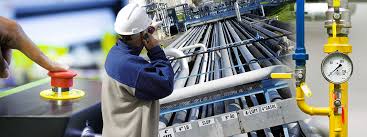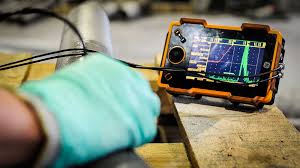Solar panel inspection NDT in Egypt is an important aspect of ensuring the efficiency and safety of solar energy systems. Non-destructive testing (NDT) methods are utilized to assess the condition and performance of solar panels, revealing any potential defects or issues that may impact their operation. In this article, we will explore the significance of NDT in solar panel inspection in Egypt, and how it contributes to the overall effectiveness and reliability of solar energy systems.
Solar panel inspection using non-destructive testing (NDT) in Egypt is crucial for ensuring the efficiency and safety of solar energy systems. NDT techniques such as infrared thermography, ultrasonic testing, and visual inspection are used to detect potential issues such as corrosion, delamination, and electrical faults in solar panels. By conducting regular NDT inspections, solar panel operators can identify and address any performance or safety issues, ultimately improving the overall energy output and longevity of the solar energy system. These inspections are essential for maintaining the reliability and sustainability of solar power generation in Egypt.
The Importance of Regular Solar Panel Inspection in Egypt

Regular solar panel inspection is crucial in Egypt due to the country's high temperatures and frequent sandstorms, which can affect the efficiency and lifespan of solar panels. Dust and sand can accumulate on the panels, reducing their ability to absorb sunlight and convert it to energy. Regular inspection can help identify and address any issues that may arise, ensuring that the solar panels continue to generate optimal power output. Additionally, regular inspection can help prevent potential safety hazards and extend the longevity of the solar panel system. Given the significant investment in solar energy in Egypt, regular inspection is essential to maximize the benefits of this sustainable energy source.
Non-Destructive Testing for Solar Panels in Egypt

Non-destructive testing (NDT) for solar panels in Egypt is crucial for ensuring the quality and reliability of the panels. NDT methods such as visual inspection, infrared thermography, electroluminescence, and current-voltage testing are used to assess the condition of the solar panels without causing any damage. These methods help to identify any manufacturing defects, material degradation, or performance issues in the panels. By conducting regular NDT, solar panel operators in Egypt can optimize the performance and lifespan of their panels, leading to increased energy production and cost savings. Additionally, NDT helps to ensure the safety and reliability of the solar power system, which is especially important in the harsh environmental conditions of Egypt. Overall, NDT plays a vital role in the maintenance and quality assurance of solar panels in Egypt.
Ensuring Efficiency: NDT for Solar Panels in Egypt

The project "Ensuring Efficiency: NDT for Solar Panels in Egypt" aims to implement non-destructive testing (NDT) techniques for solar panels in Egypt to ensure they are operating at optimal efficiency. NDT methods such as thermal imaging, ultrasonic testing, and visual inspection will be used to detect any defects or issues in the solar panels without causing any damage. By implementing NDT for solar panels in Egypt, the project seeks to improve the overall performance and reliability of solar energy systems in the region. This will contribute to the sustainable development of renewable energy sources and help meet the growing demand for clean energy in Egypt. Furthermore, the project will provide training and resources to local technicians and engineers to equip them with the necessary skills to conduct NDT on solar panels effectively. This will not only ensure the continued efficiency of existing solar panels but also promote the adoption of NDT practices in future solar energy projects in Egypt. Overall, "Ensuring Efficiency: NDT for Solar Panels in Egypt" is a crucial initiative in the effort to maximize the potential of solar energy in the region and contribute to the global transition towards sustainable and clean energy.
Advancements in Solar Panel Inspection in Egypt
ndt inspection services
Advancements in solar panel inspection in Egypt have been driven by the growing importance of renewable energy in the country. With an increasing number of solar plants and installations, there has been a focus on developing more efficient and accurate inspection techniques. This has led to the adoption of advanced technologies such as drones and thermal imaging cameras to conduct inspections of large solar arrays. These methods allow for quicker and more comprehensive assessments of the condition of solar panels, helping to identify and address any issues that may affect their performance. Additionally, the use of machine learning and artificial intelligence has enabled the development of predictive maintenance models that can anticipate and prevent potential issues with solar panels, further improving their reliability and efficiency. Overall, these advancements in solar panel inspection in Egypt are helping to ensure that the country can maximize the potential of its solar energy resources.
Maximizing Output: NDT for Solar Panels in Egypt<
ndt weld testing/h2>
Maximizing Output: NDT for Solar Panels is a project aimed at enhancing the efficiency of solar panels in Egypt through the use of Non-Destructive Testing (NDT) techniques. The project involves the application of advanced NDT methods to identify and address any defects or issues in solar panels, thus maximizing their output and prolonging their lifespan. By leveraging NDT technology, the project seeks to contribute to the development of sustainable and reliable solar energy solutions in Egypt, ultimately supporting the country's transition towards clean and renewable energy sources.
The Role of NDT in Solar Panel Maintenance in Egypt
The role of Non-Destructive Testing (NDT) in solar panel maintenance in Egypt is crucial for ensuring the efficient and reliable operation of solar power systems. NDT techniques such as thermal imaging, ultrasonic testing, and visual inspection are used to detect and assess potential defects or degradation in solar panels. These techniques help in identifying issues such as delamination, corrosion, cracks, and electrical faults without the need for physically altering or damaging the solar panels. By conducting regular NDT inspections, solar panel maintenance professionals in Egypt can identify and address any issues early on, thus ensuring the optimal performance and longevity of the solar panels. Additionally, NDT plays a vital role in ensuring the safety and reliability of solar power systems, ultimately contributing to the sustainability of renewable energy in Egypt.
Best Practices for Solar Panel Inspection in Egypt
Solar panel inspection in Egypt should follow best practices to ensure efficiency and safety. This includes regular visual inspections for any signs of damage or wear, such as cracks or corrosion. Additionally, electrical testing should be conducted to measure the output and performance of the solar panels. It is also important to keep the panels clean and clear of debris to maintain optimal functionality. Regular maintenance and monitoring are essential for maximizing the lifespan and performance of solar panels in Egypt's climate.
